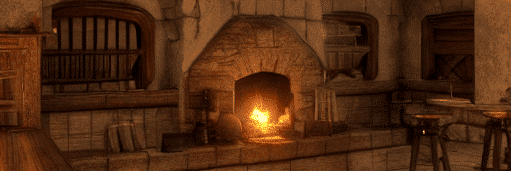
Having a functional chimney in your home is essential for several reasons.
A chimney serves as an exhaust system that removes smoke, gas, and other byproducts from the fireplace or furnace to ensure safety and maintain good indoor air quality.
Let’s discuss what a chimney is, its purpose, why it’s necessary to have one in your home, how it prevents rain from entering, and more.
Definition of a Chimney:
A chimney is a vertical structure made of brick, stone, concrete, metal or a combination of these materials.
It typically extends upward from a firebox or furnace through the roof of a building.
The main function of a chimney is to provide ventilation for combustion gases produced by heating appliances such as wood stoves, fireplaces, boilers, and water heaters.

Purpose of a Chimney:
The primary purpose of a chimney is to remove dangerous fumes, including carbon monoxide, from inside your home safely and efficiently.
It also helps prevent back-drafting, which occurs when cold air enters the flue and pulls hot gases back into the house.
Additionally, a properly installed and maintained chimney can improve draft, increase efficiency, and reduce fuel consumption.

The Necessity of a Chimney in Your Home:
If you use a fireplace or wood-burning stove regularly, having a working chimney is crucial for your health and safety.
Without a chimney, pollutants like soot, ash, and smoke would accumulate in your living space, causing respiratory problems and potential long-term damage to your lungs.
Moreover, an unvented fireplace or stove can lead to carbon monoxide poisoning, which can be fatal.
How Does a Chimney Prevent Rain from Entering:

Chimneys are designed with various features that help keep moisture out. For example, most modern vents have a weather cap at the top to protect against wind-blown rain and snow.
They also have a crown, which is the uppermost part of the chimney that seals the joints between the individual bricks or stones.
This keeps water from getting inside the chimney and damaging the mortar and masonry work.
If there is any damage to the crown or weather cap, it should be repaired immediately to avoid leaks and water intrusion.
Why Have an Unused Chimney:

Even if you don’t use your fireplace or stove frequently, it’s still essential to maintain your chimney.
An unused chimney can still collect creosote, a flammable substance that builds up inside the flue over time.
Creosote buildup can cause a chimney fire, which can spread quickly and destroy your entire home.

Regular cleanings and inspections can identify and address any issues before they become major problems.
